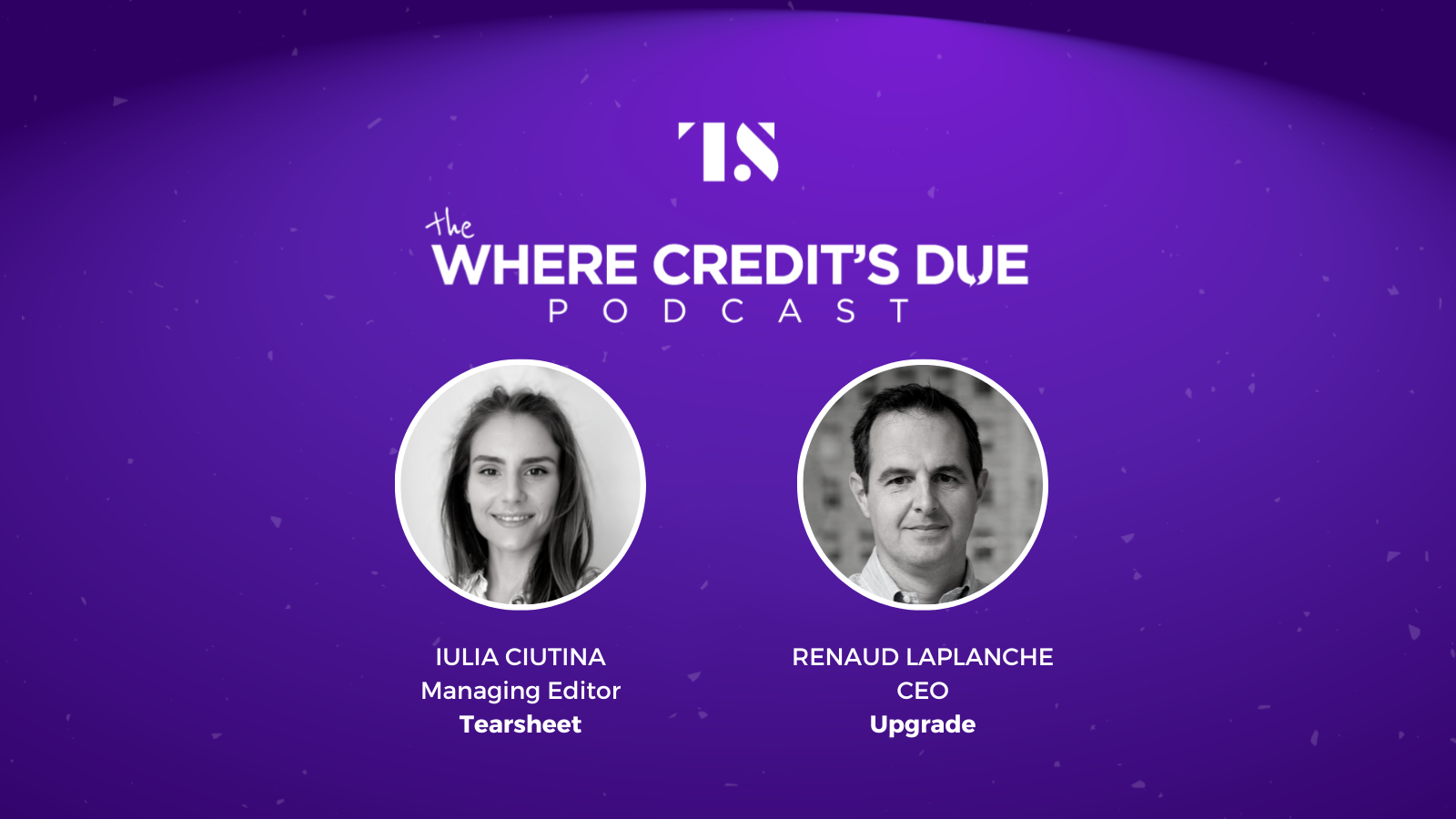Where Credit's Due Podcast
Where Credit’s Due Ep. 12: Diving into Upgrade’s B2C fintech lending strategy, with CEO Renaud Laplanche
- With a recession looming, consumer spending and overall financial health is under pressure, creating a tricky environment for B2C fintech lenders.
- In this context, I sat down with Renaud Laplanche, CEO at Upgrade, one of the main direct-to-consumer fintech lenders in the US.








